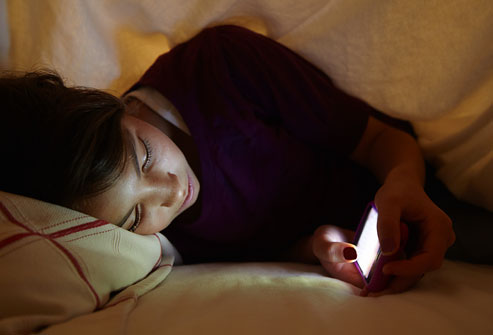Unicef: Kids at risk of ‘bedroom culture’
 Otago Daily Times 11 December 2017
Otago Daily Times 11 December 2017
Family First Comment: Simple rule – no technology in bedrooms.
And use SafeSurfer (which we endorse)
Smartphones are fuelling a “bedroom culture” with online access for many children becoming more personal, more private and less supervised, Unicef warns.
The agency, the United Nations’ fund for children, says in its latest State of the World’s Children report that one in every three internet users in the world is aged 18 and under.
It says the internet is a “game-changer for some of the world’s most marginalised children, helping them fulfil their potential and break intergenerational cycles of poverty”.
But it says the net is also creating a “bedroom culture”.
“Mobile phones enable children to access the internet in the privacy of their bedrooms or from a friend’s house,” it says.
“The result is online access that is more personal, more private and less supervised.”
The report says children are going online at ever-younger ages.
“In Bulgaria, for example, the age at which children first used the internet was commonly 10 in 2010 but had dropped to 7 by 2016,” it says.
“In China, children under 10 made up 2.9% of all internet users in 2016, up from 2.7% in 2015.
“In Brazil, the proportion of 9- and 10-year-olds using the internet increased from 35% in 2012 to 37% in 2013.
“It is not uncommon for children who are not yet even teenagers to own their own phones. A survey in Algeria, Egypt, Iraq and Saudi Arabia in 2013 found that age 10 or 12 was the most common age for receiving a first mobile phone.
“In 2015, age 10 was found to be the common age for a child to first own a mobile phone in the Philippines, while in Honduras it was age 12.”
The report says smartphones “are intensifying traditional childhood risks, such as bullying, and fuelling new forms of child abuse and exploitation, such as ‘made-to-order’ child sexual abuse material and live streaming of child sexual abuse”.
“Predators can more easily make contact with unsuspecting children through anonymous and unprotected social media profiles and game forums,” it says.
“New technologies – like cryptocurrencies and the Dark Web – are fuelling live streaming of child sexual abuse and other harmful content, and challenging the ability of law enforcement to keep up.
“Ninety-two percent of all child sexual abuse URLs identified globally by the Internet Watch Foundation are hosted in just five countries: the Netherlands, the United States, Canada, France and the Russian Federation.
“Efforts to protect children need to focus particularly on vulnerable and disadvantaged children, who may be less likely to understand online risks – including loss of privacy – and more likely to suffer harms.”
READ MORE: https://www.odt.co.nz/news/national/unicef-kids-risk-bedroom-culture







